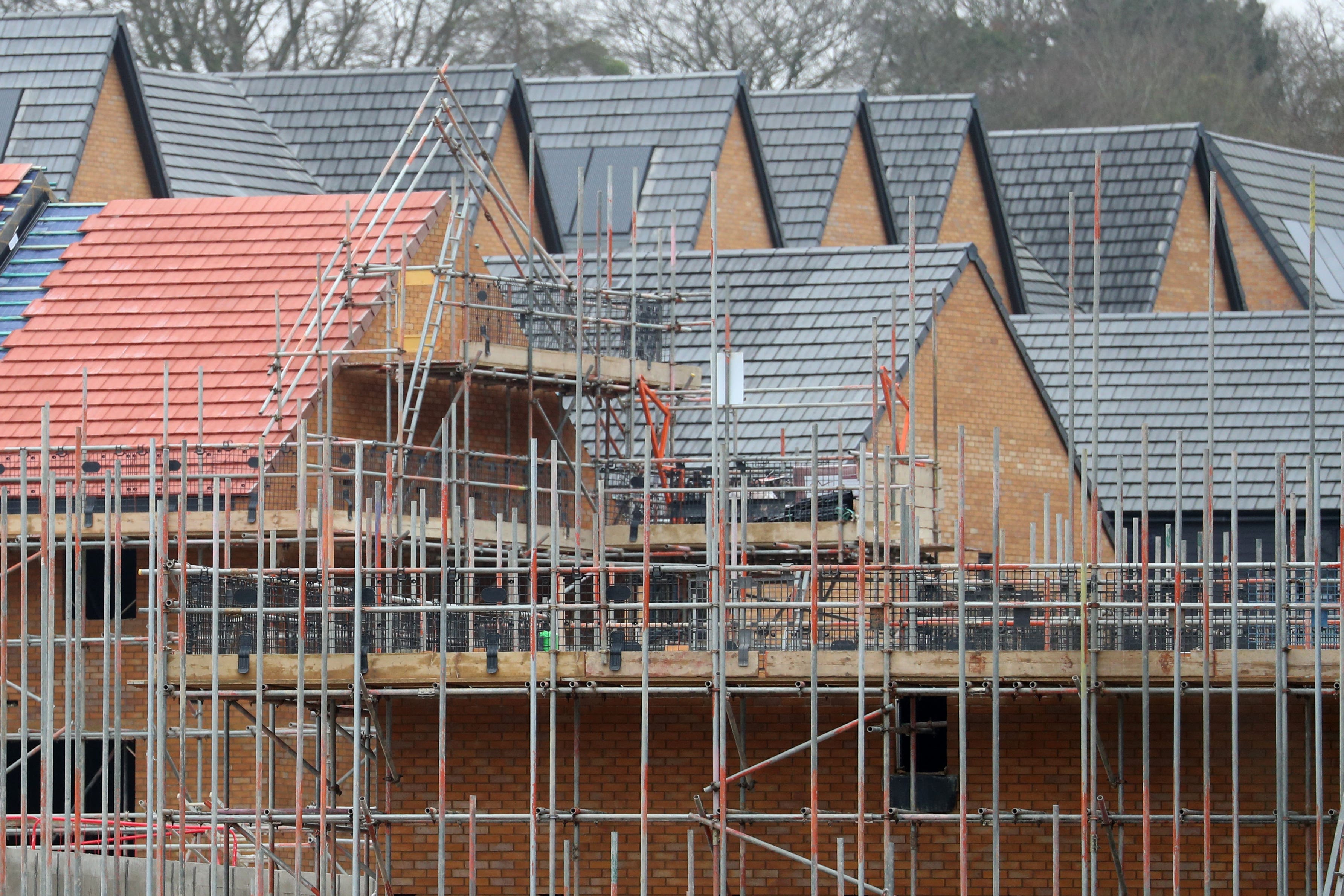UK construction activity eases amid steep drop in housing demand
A closely watched survey found the construction sector grew slightly in March but was weighed down by a housing slowdown.

Your support helps us to tell the story
This election is still a dead heat, according to most polls. In a fight with such wafer-thin margins, we need reporters on the ground talking to the people Trump and Harris are courting. Your support allows us to keep sending journalists to the story.
The Independent is trusted by 27 million Americans from across the entire political spectrum every month. Unlike many other quality news outlets, we choose not to lock you out of our reporting and analysis with paywalls. But quality journalism must still be paid for.
Help us keep bring these critical stories to light. Your support makes all the difference.
The fastest decline in housebuilding for nearly three years has acted as a drag on the UK’s construction sector, an influential survey has shown.
Growth among construction businesses eased in March amid a slowdown in demand for new homes that has been exacerbated by rising interest rates.
The closely-watched S&P Global/CIPS construction purchasing managers’ index scored 50.7 in March, down from 54.6 in February when the sector had rebounded to a nine-month high.
But it means it was above the 50 score threshold for the second month in a row, which indicates growth for the sector.
A resurgence in civil engineering projects and transport-related construction activity drove up total production, including a boost from work on high-speed railway HS2 infrastructure.
Cutbacks to new residential projects in the wake of subdued demand and rising interest rates contributed to the sharpest fall in housing activity across the construction sector for almost three years
But the industry was impacted by a “sharp and accelerated” drop in housing activity during the month, hitting a score of 44.2 and marking the steepest decline since May 2020.
Construction firms said they have seen weaker demand for residential housebuilding projects amid rising borrowing costs.
It comes as the Bank of England hiked up interest rates to 4.25% last month, marking the 11th rate increase in a row.
Tim Moore, economics director for S&P Global Market Intelligence, which compiles the survey, said: “UK construction companies experienced a sustained rebound in output levels during March as work on civil engineering and commercial projects picked up for the second month running.
“A sharp and accelerated decline in housebuilding was the main area of concern in March.
“Cutbacks to new residential projects in the wake of subdued demand and rising interest rates contributed to the sharpest fall in housing activity across the construction sector for almost three years.”
Nevertheless, there were signs that construction companies were feeling more optimistic amid stronger workloads and a rise in staff recruitment.
Nearly half of the firms surveyed predicted an increase in business activity during the year ahead, while only a tenth foresee a reduction, which was the highest level of optimism since February 2020.
Max Jones, director in Lloyds Bank’s infrastructure and construction team, said: “Despite a dip in the reading, contractors are heading into the spring months with cautious optimism.
“Industry leaders have naturally expressed disappointment about recent HS2 announcements and the impact on the sector’s pipeline, however, infrastructure continues to provide a healthy orderbook.”
It comes as further delays to HS2 were announced last month under cost-saving measures for the multi-billion infrastructure project, with the Birmingham to Crewe leg set to be pushed back by two years.